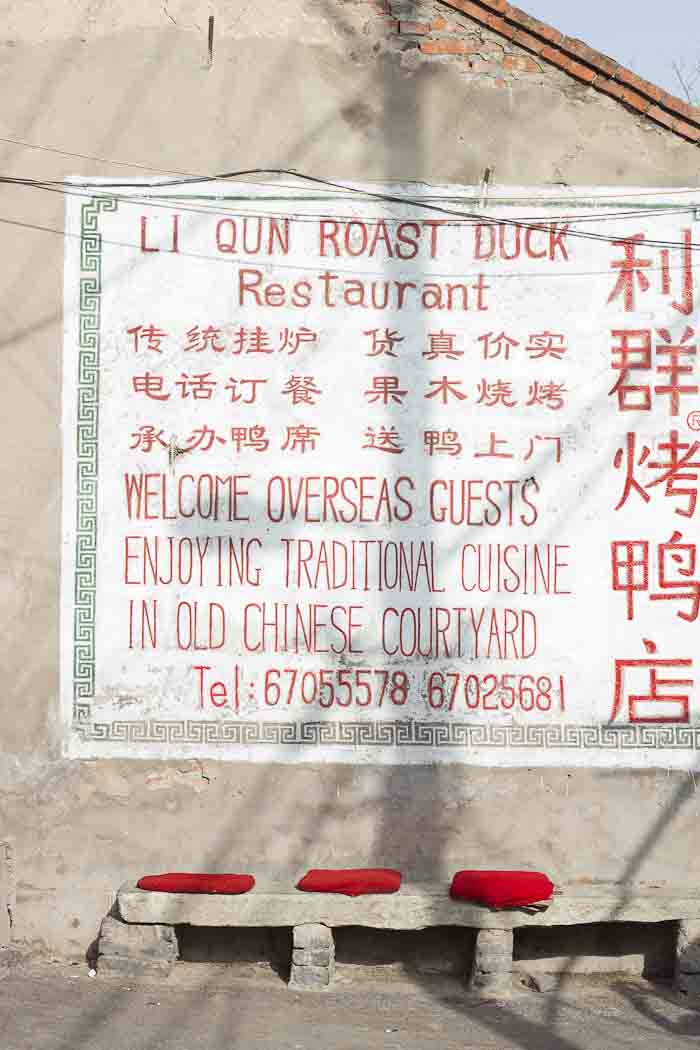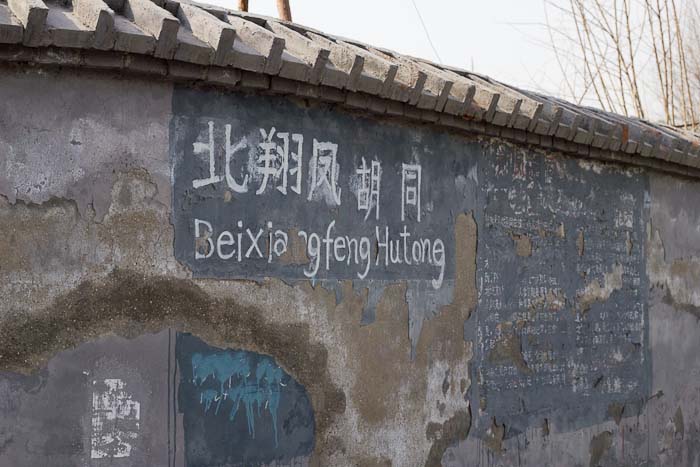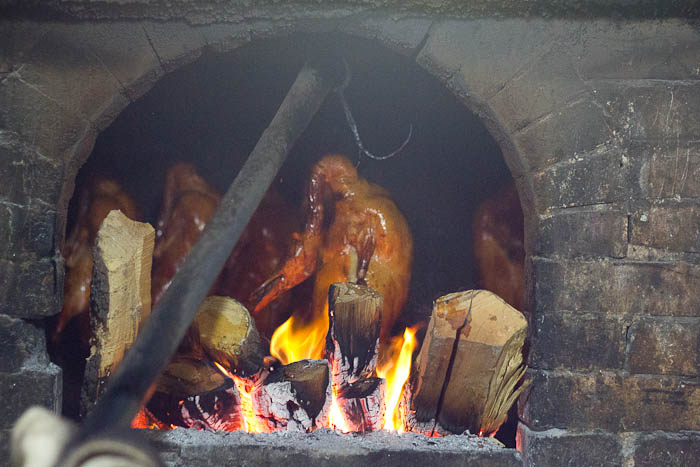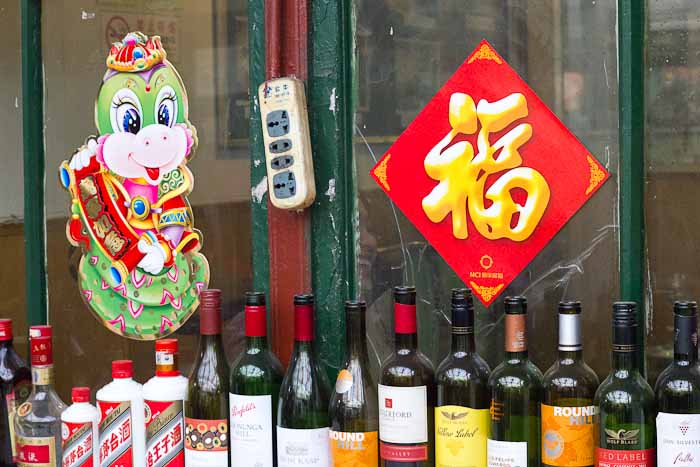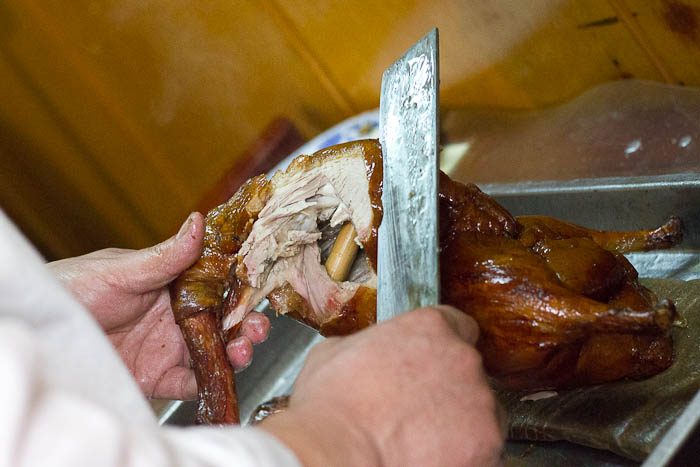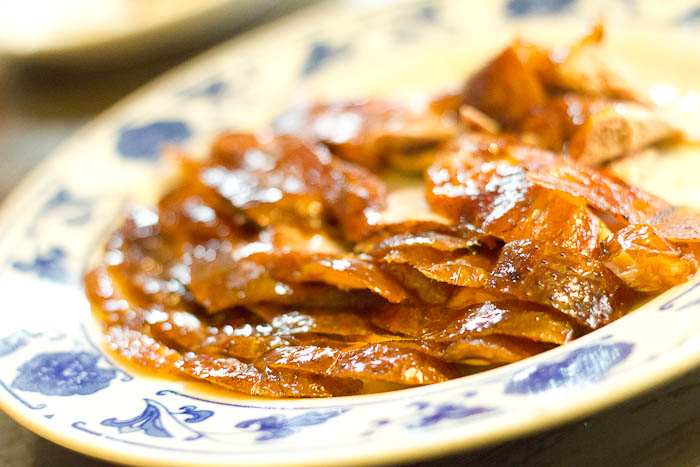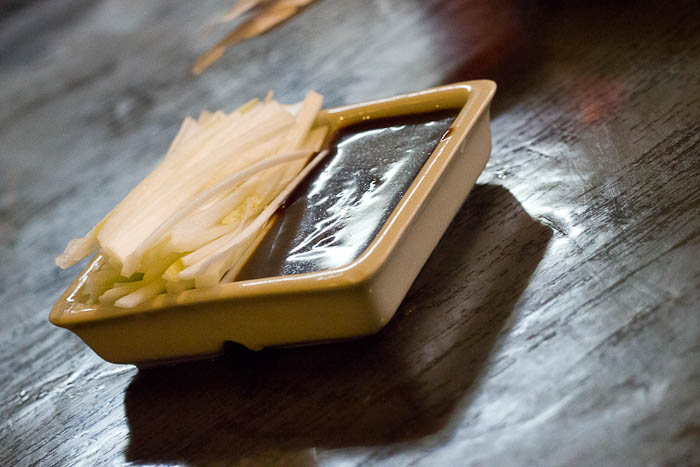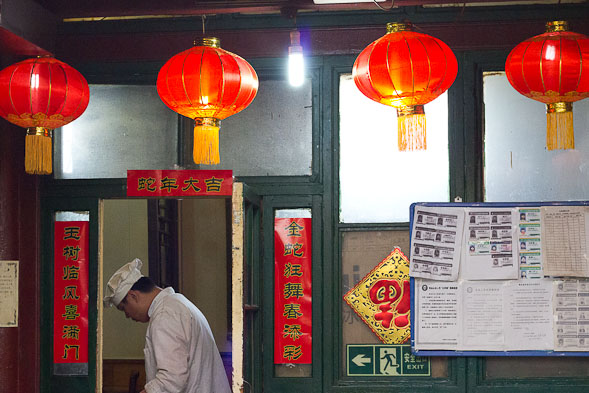The Best Beijing Duck Yet – Li Qun, Beijing
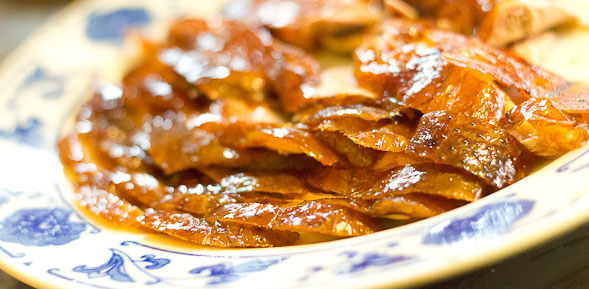
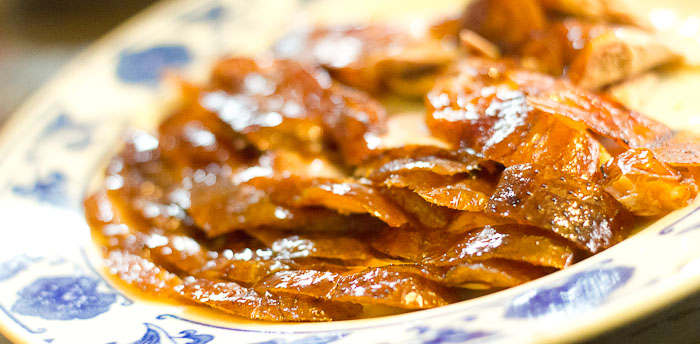 To say I’m a little obsessed with Beijing duck would be putting it mildly. Almost every city in China has its own way of doing roast duck (and, in some parts, roast goose), but it’s Beijing duck that we foreigners think of when we think of Chinese roast duck.
To say I’m a little obsessed with Beijing duck would be putting it mildly. Almost every city in China has its own way of doing roast duck (and, in some parts, roast goose), but it’s Beijing duck that we foreigners think of when we think of Chinese roast duck.
You don’t just smell Beijing duck on the streets of Qiamen. You hear it, the cry of “KaoYa” (roast duck) blazing from the tannoys to lure in domestic tourists, as keen as the foreigners to try Beijing duck in Beijing.
Now, at the risk of committing blasphemy, it is pretty much impossible to find bad Beijing duck in Beijing. The humblest kaoyadian (the local name for a restaurant that specialises in roast duck) will beat the hell out of any duck joint outside China.
And such a cheapskate am I that I’ve typically gone somewhere that smells good, has a lot of locals in it, or out of town spots that locals recommend, spent around 100 kuai (£10) for a duck with trimmings, and never been other than satisfied.
That said, this weekend was time to step it up a little, and check out a few candidates for the title “best Beijing duck in Beijing”.
The competition for best Beijing duck in Beijing is fierce, but some regularly cited contenders are, from the new style, Da Dong and Duck de Chine, and from the old school Quanjude and Li Qun.
All of these serve Beijing duck that’s tender and succulent, with a rich layer of fat topped by crispy skin, and at all of these you can see your duck being carved with varying degrees of theatre: Duck de Chine announces the duck’s arrival at your table with a gong!
Quanjude, on the touristy pedestrian street Qiamen Dajie, is undoubtedly Beijing’s most famous duck restaurant, where luminaries from Stalin onwards have dined in high style. It’s also almost certainly Beijing’s oldest continuously operating roast duck restaurant.
But, after being greeted with frowns and stares from Beijingers, and told that Quanjude was “too expensive”, “not that good” and “only for tourists”, we were diverted to Li Qun.
And I’m glad we did. Quanjude has real style and elegance, and I still want to eat there for the theatre.
But Li Qun is a courtyard restaurant in one of Beijing’s few remaining hutongs. The hutongs are low-rise warrens of peasant houses, built during the imperial era, when buildings above one storey were forbidden, lest someone might look down on the emperor from an upper window.
Today they are rapidly being knocked down and replaced, in an oh-so-Chinese piece of utter weirdness, with new, fake hutongs, so for me at least Li Qun’s hutong location is a major selling point.
The history of Beijing duck is disputed. What is clear is that roast duck has been served in China for thousands of years, and was enjoyed at the imperial court for several dynasties, probably even before the imperial court moved from Nanjing to Beijing.
Today’s Beijing ducks are prepared from a specific breed of duck (the Pekin duck), which are forcefed to get their fat layers up to scratch without becoming oversized.
To get the preferred balance of crispy skin, a lot of smooth fat and incredibly moist, succulent flesh, chefs pump air between the skin and the fat, and, over a lengthy preparation period, carefully dry and glaze the duck with a simple syrup.
Then they roast it in a proper, fired oven. I didn’t realise quite what a fine art there was to roasting Beijing duck until we walked into Li Qun to see ducks roasting in a brick wood oven, and a chef tending to them with a metal duck hook.
And not just any wood. Li Qun uses apple wood, peach wood, plum wood plus wood from a range of fruit trees neither my Chinese nor the manager’s English extended to (one of them is rendered as “menthod” on the menu, if that helps).
Although Li Qun’s walls are lined with photos of celebrities who’ve eaten here, from every Hong Kong film star you can shake a stick at through to captains of industry and politicians from around the world, the feel is, frankly, down-at-heel.
There are fridges in the main area. Beer, wine and fizzy drink bottles lined up against chipped window frames. The floor tiles are grimy.
The kitchen would win no prizes for hygiene, the chefs’ whites are anything but and the loos, while atypically clean, are in other ways a typical shared hutong affair with nary so much as a partition to spare your blushes.
But with its courtyard layout – small rooms spinning off a central courtyard – Li Qun has a grimy appeal that rather floated my boat.
It feels, well, lived-in. Well-loved…
We went for one of Li Qun’s set options, the “traditional”, though you can consume every part of the duck but the feathers here, from bones cooked to a crunch or made into a soup, right through to the head, feet and intestines.
Some restaurants serving Beijing duck in the “traditional” style start with slivers of skin with sugar to dip them in and follow the meat with duck soup made from bones. This isn’t Li Qun’s take on the traditional, an area which, like the history of Beijing duck, or, for that matter, the best Beijing duck restaurant in Beijing, can inspire heated debate.
In addition to pancakes (perfectly thin, but disappointingly cold), plum sauce, spring onion and cucumber, the traditional option includes broccoli, egg rolls, salted duck liver and duck wing in hot sauce.
Our duck arrived in its tray without especial ceremony, and the server set to work carving it at a sideboard.
There is a fine art to carving a duck so almost every slice contains the preferred blend of 50% flesh and 50% fat and skin (Beijing duck is not a dish for those who worry about their cholesterol).
Getting the pieces to this level of precision is no small thing, even if you do do it day in, day out, as these guys do.
And the flavour?
Absolutely exceptional. I like my duck Chinese-style, which is to say a lot fattier than some Westerners will tolerate it (though if you’re calorie-counting, you can always pull off the fat and eat the meat alone). And Li Qun’s was by miles the best Beijing duck I’ve tried yet.
What makes the difference here is, yes, you guessed it, that wood oven, and in particular the fruit wood.
In addition to the crunch of the skin, you get a smoky, earthy tang – an earthiness that’s also replicated in the dark plum sauce, which stays firmly on the umami end of things, with an ample hit of five spice and soy, and none of the crude sweetness you’ll find in a Chinese restaurant overseas.
And the meat, of course, is tender, succulent, duck-a-licious and to die for. Duck times a gadzillion.
The salted duck liver? Not overly salty. Worked well with the sauce. But a bit dull. Honestly, I prefer duck liver as pate or foie.
Paradoxically, precisely because of the smoky flavours that I loved, I’m not sure I’d recommend Li Qun as the first place to try Beijing duck in Beijing.
But if you’ve had true (Beijing-style) Beijing duck before and loved it, I’d thoroughly recommend Li Qun. And, if you’re packing a vegetarian, they have a reasonable selection of veggie dishes too.
You’ll need to book ahead at meal times, but if you’re happy having lunch at 3pm, spaces are easy enough to find. Expect to pay around 500 kuai for a duck, a bottle of decent house wine and plenty of trimmings.
Li Qun Kaoyadian
11 Beixiangfeng Hutong, off Zhengyi Lu, Chongwenmen, Beijing
Metro: Chongwenmen
Tel: +86 (0)10 6705 5578
Chinese name: 利群烤鸭店
Chinese address, with directions: 崇文区前门东大街北翔凤胡同11号 (正义路南口)
Walking and get lost? Try saying “Lee Choon Cow Yah”.
